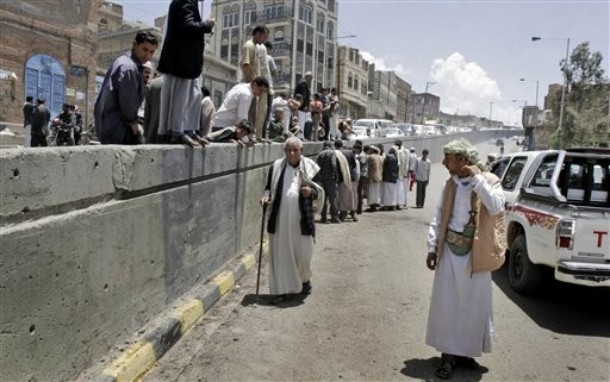What to Do about Yemen?
What to do about Yemen?

This is the question dejure and it has provoked a number of interesting responses. Here we have Andrew Exum and Richard Fontaine arguing that we should engage comprehensively with the current regime and here's Gregg Carlstrom saying that we did much the same thing with Musharaff in Pakistan and that hasn't exactly brought about a stable, pro-American Pakistan. What we're left with is no good options.
This cuts to the heart of a problem with the war on terror: the tactical moves which appear essential, such as targeted killings and working with unsavory governments can undermine our position over the long term. Collateral damage and the image of the U.S. bombing various terrorist enclaves can drive new recruits, while the empowerment of corrupt and despised regimes inevitably leads to resentment at their foreign patron. On the other hand, doing nothing to aggressively thwart those who would blow up American airliners is an abdication of the basic responsibility a government has to protect its citizens.
Unfortunately, the debate tends to break down with those advocating the long view unable to offer a viable plan to offset immediate dangers, while those urging immediate action (particularly military action) don't have a plausible way to merge those recommendations with longer term considerations.
But the emergence of the airline bomb plot does seem to vindicate those, like Paul Pillar, Stephen Walt and others, who've argued that even a successful surge in Afghanistan won't offset the threat from jihadist terror or prevent the emergence of other safe havens.
(AP Photos)



